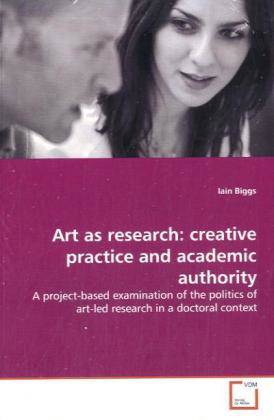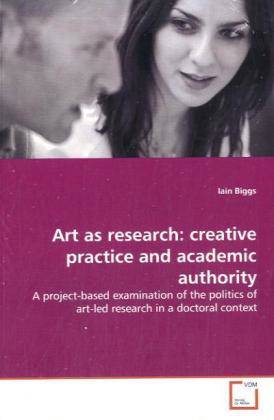
- Afhalen na 1 uur in een winkel met voorraad
- Gratis thuislevering in België vanaf € 30
- Ruim aanbod met 7 miljoen producten
- Afhalen na 1 uur in een winkel met voorraad
- Gratis thuislevering in België vanaf € 30
- Ruim aanbod met 7 miljoen producten
Zoeken
€ 86,45
+ 172 punten
Omschrijving
Questions about arts-led research and the role of the doctorate as a qualification in the arts have become increasingly central to understanding where art education - and so the arts themselves - might be heading. These questions are in turn closely related to the wider issues of the role of creativity, the 'subjective' and interdisciplinarity in research. In turn these questions challenge many assumptions that underpin the traditional claim to lead the production of new knowledge central to the authority of universities. Driven by issues of professional status, debates on these issues rarely make explicit the underlying psychosocial and professional tensions that inform them, masked what is really at stake in the current debate. As a former Chair of the National Association for Fine Art Education, the author brings a wealth of direct experience to an analysis of these tensions, using a critical discussion of the process of his own art-led research to identify the importance of understanding educational changes in relation to the new role of the artist/teacher/researcher within institutions now facing the challenge of major social and environmental changes.
Specificaties
Betrokkenen
- Auteur(s):
- Uitgeverij:
Inhoud
- Aantal bladzijden:
- 152
- Taal:
- Engels
Eigenschappen
- Productcode (EAN):
- 9783639156911
- Verschijningsdatum:
- 21/05/2009
- Uitvoering:
- Paperback
- Formaat:
- Trade paperback (VS)
- Afmetingen:
- 152 mm x 229 mm
- Gewicht:
- 231 g

Alleen bij Standaard Boekhandel
+ 172 punten op je klantenkaart van Standaard Boekhandel
Beoordelingen
We publiceren alleen reviews die voldoen aan de voorwaarden voor reviews. Bekijk onze voorwaarden voor reviews.








